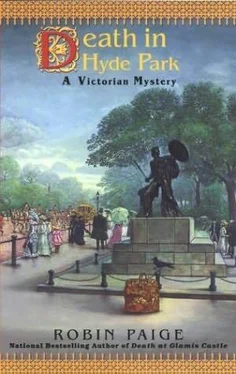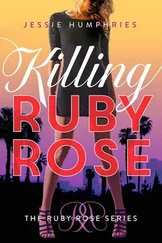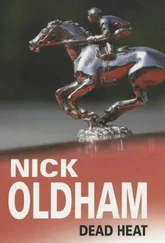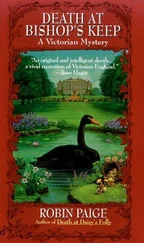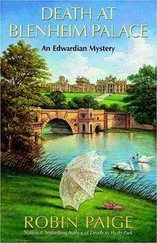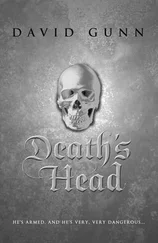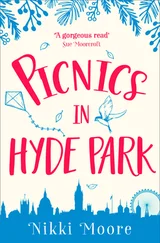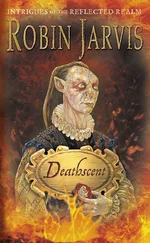Robin Paige - Death in Hyde Park
Здесь есть возможность читать онлайн «Robin Paige - Death in Hyde Park» весь текст электронной книги совершенно бесплатно (целиком полную версию без сокращений). В некоторых случаях можно слушать аудио, скачать через торрент в формате fb2 и присутствует краткое содержание. Жанр: Классический детектив, на английском языке. Описание произведения, (предисловие) а так же отзывы посетителей доступны на портале библиотеки ЛибКат.
- Название:Death in Hyde Park
- Автор:
- Жанр:
- Год:неизвестен
- ISBN:нет данных
- Рейтинг книги:5 / 5. Голосов: 1
-
Избранное:Добавить в избранное
- Отзывы:
-
Ваша оценка:
- 100
- 1
- 2
- 3
- 4
- 5
Death in Hyde Park: краткое содержание, описание и аннотация
Предлагаем к чтению аннотацию, описание, краткое содержание или предисловие (зависит от того, что написал сам автор книги «Death in Hyde Park»). Если вы не нашли необходимую информацию о книге — напишите в комментариях, мы постараемся отыскать её.
Death in Hyde Park — читать онлайн бесплатно полную книгу (весь текст) целиком
Ниже представлен текст книги, разбитый по страницам. Система сохранения места последней прочитанной страницы, позволяет с удобством читать онлайн бесплатно книгу «Death in Hyde Park», без необходимости каждый раз заново искать на чём Вы остановились. Поставьте закладку, и сможете в любой момент перейти на страницу, на которой закончили чтение.
Интервал:
Закладка:
The inspector put his hand behind his back. “Privilege against self-incrimination,” he growled.
With a heavy irony, Savidge said, “Thank you, Inspector Ashcraft. You have been most helpful.”
The prosecutor, his youth and inexperience all too evident now, seemed to have lost confidence in his case-understandably, Charles thought. His summation was brief, faltering, and unconvincing. Savidge, however, spoke with a fierce resoluteness, pointing out that the case against all three of the defendants consisted of nothing more than guilt by association; that the informant who believed Mr. Kopinski was a “dangerous man” could not be questioned nor his veracity tested; that Mrs. Battle’s testimony to an overheard conversation had been entirely discredited; and that the evidence of the ginger-beer bottles-the only direct evidence in the entire case-was seriously compromised. Inspector Ashcraft had testified that he had never touched any of the evidence, yet his thumbprint could clearly be seen on the bottle found in Adam Gould’s flat, in such a way as to suggest that he had put the evidence where the police found it. He sought refuge in the claim of privilege against self-incrimination when asked to explain to the jury how this had occurred, and how his right index finger had come to exhibit the stain and peeling consistent with a nitric-acid burn.
By the time Savidge was finished with his passionate appeal, Charles thought, he had most of the spectators in his corner. It was then the judge’s turn. His lordship spoke briefly (and fairly, Charles thought), laying before the jury the prosecution’s arguments and those of the defense, and charging them to consider the case on the evidence only. Then he withdrew and the jury retired to its deliberations. It was four o’clock.
CHAPTER TWENTY-NINE
It is better that ten guilty persons escape than one innocent suffer.
Sir William Blackstone, Commentaries on the Laws of EnglandIt is better to execute a hundred innocent persons than to permit one guilty person to go free.
Vladimir Ilich Lenin
We must execute not only the guilty. Execution of the innocent will impress the masses.
Nikolai Kyrlenko,
Commissioner of Justice under Lenin
When the jury had retired, Kate and Nellie went out for a cup of tea. By the time they returned to the courtroom, the gas jets had been lighted, the spectators’ section was half-empty, and the journalists were glancing uncertainly at their watches, as if wondering whether they might safely go out to a restaurant. The jury might agree at any moment; on the other hand, it might deliberate for hours if just one of their number differed in his opinion from the others.
At half-six, the usher came into the court and announced that the jury had reached a verdict. The spectators scrambled to return to their seats, and the prosecuting and defense counsels took their places. The defendants, still shackled, were returned to the dock, each one escorted by a warder, with a plain clothes officer standing guard. A dead silence fell upon the courtroom as the judge took his seat, and then the jury. The clerk called out their names, one by one, and then said: “Gentlemen of the jury, have you agreed upon your verdicts?”
“We have,” the foreman answered in a stern voice. The verdicts were read out swiftly, a sibilant sigh, like the sound of ocean surf, washing through the room at each reading. Pierre Mouffetard, guilty. Ivan Kopinski, guilty. Adam Gould, not guilty. The three men stood, not moving, as still as stone.
“Not guilty!” Nellie exclaimed jubilantly. “They found Adam not guilty! Oh, I wish Lottie were here to see him go free. And surely the police cannot want her, now that the trial is over.” Around Kate and Nellie, the crowd was exchanging excited whispers. “Guilty! Guilty! Not guilty!”
The judge pounded his gavel for order, and pronounced sentence: ten years of penal servitude for each of the two convicted men. “Ten years!” went the whispers around the courtroom, louder now, and awed. “Ten years!”
As Kate watched, the warder standing beside Adam bent down and removed his shackles. The warders beside Pierre and Ivan applied handcuffs. Then they were escorted out of the dock, leaving Adam standing alone and bewildered, looking after the departing prisoners, raising his hands and stepping toward them, as if to go with them. Perhaps he wanted to say goodbye, Kate thought, or to protest at the fate that released him and imprisoned them-or perhaps he had not yet realized that the jury had acquitted him, that he was unshackled and free to go.
Then Adam seemed to come to himself. He glanced once more over his shoulder at the others, then a great smile spread across his face, and with a leaping, jubilant step, he went down the steps and made for the defense table, where he seized the hands of both Charles and Edward Savidge, pumping them up and down.
“Ten years,” Nellie said, suddenly sobered. “That’s a very long time for… for what, Kate? For working at the Clarion? For being acquainted with the man who blew himself up?”
“I don’t understand,” Kate said angrily, “how the jury could find one innocent and the other two guilty. That awful old lady perjured herself, the inspector doctored the evidence, and the whole case was so flimsy that it took no more than a good puff of air to blow it all to pieces.”
“It’s because Mouffetard is French and Kopinski has a Russian name,” Nellie said in a practical tone. “They let Adam Gould go free because he’s English.” She smiled crookedly. “Juries can do anything they like, I guess.”
“I suppose,” Kate sighed, gathering up her things. “It’s late, Nellie, and we’re both tired. Let’s find a cab.”
Feeling as if a terrible burden had been lifted from his shoulders, Adam Gould stood on the stone steps of the Old Bailey, a free man. He had thanked Lord Sheridan and Edward Savidge, and each member of the jury. In his excitement, he had even thanked the bailiff and the judge. It was all over now but the shouting, and there was plenty of that. Around him rose a stormy cacophony of voices, some people hailing him with jubilant congratulations, others hurling angry abuse. But Adam heard almost none of it, for he was too full of a turbulent storm of feelings. He was torn by anger and grief at the conviction of Pierre and Ivan, who were no more guilty than he of the crime with which they’d been charged. But he was also filled with a glad relief at the thought of his freedom. Now if only he could find Lottie…
The twilight had been hastened into evening by a bank of lowering clouds, and a fine mist filled the darkening air. Eagerly, Adam searched the milling crowd on the sidewalks, under the gas lamps. Lottie. Where was the devil was she? He hadn’t expected her to come to the prison to see him, but he had been both confident and afraid that she would come to his trial: confident, because he knew that she cared for him, afraid because he knew that if she showed her face in the courtroom, the police would grab her. He’d spent the whole day in the dock searching each face in the spectators’ section, both hoping and fearing to see her and alternately jubilant and despairing that she was not there. And then, when the verdict was read out and he was acquitted, he hoped to see her come flying toward him, to fling his arms around her and hold her tight, hold her and hold her and never let her go. That would have been the real victory, he a free man and Lottie in his arms.
But she had not been in the courtroom and now, he saw, surveying the crowd with mounting despair, she was not outside, waiting for him in the street. Did that mean that something terrible had happened to her? That the police had caught her and were holding her somewhere? That she had been forced to leave the country, or And then he saw her. She was dressed in the garb of a Russian girl, in a white, full-sleeved blouse and dark skirt with an embroidered apron, a red babushka tied under her chin. But no matter what costume she had been wearing, Indian or Russian or Egyptian, Adam would have recognized that dear, familiar form and graceful motion anywhere in the world. He thrust up his arm and shouted against the clamor of shouting voices, the clatter of horses’ hoofs, the confusion of noisy lorries in the street. “Lottie! Lottie!”
Читать дальшеИнтервал:
Закладка:
Похожие книги на «Death in Hyde Park»
Представляем Вашему вниманию похожие книги на «Death in Hyde Park» списком для выбора. Мы отобрали схожую по названию и смыслу литературу в надежде предоставить читателям больше вариантов отыскать новые, интересные, ещё непрочитанные произведения.
Обсуждение, отзывы о книге «Death in Hyde Park» и просто собственные мнения читателей. Оставьте ваши комментарии, напишите, что Вы думаете о произведении, его смысле или главных героях. Укажите что конкретно понравилось, а что нет, и почему Вы так считаете.
